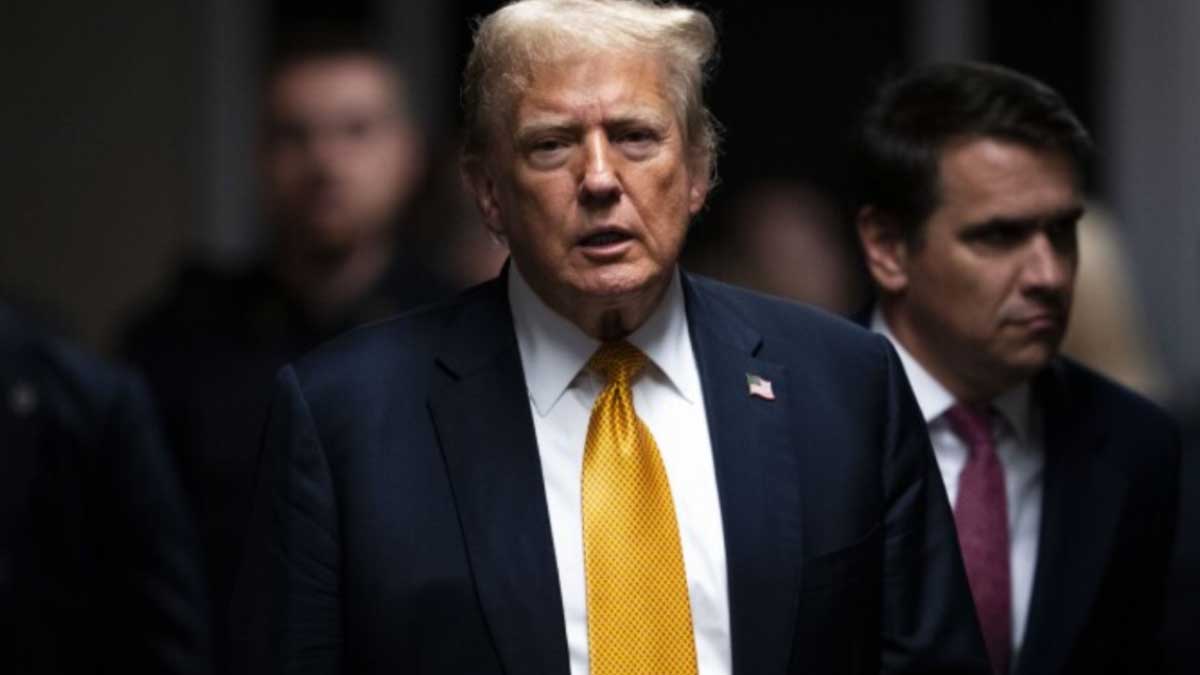- Home
- Billionaires
- Investing Newsletters
- 193CC 1000
- Article Layout 2
- Article Layout 3
- Article Layout 4
- Article Layout 5
- Article Layout 6
- Article Layout 7
- Article Layout 8
- Article Layout 9
- Article Layout 10
- Article Layout 11
- Article Layout 12
- Article Layout 13
- Article Layout 14
- Article Sidebar
- Post Format
- pages
- Archive Layouts
- Post Gallery
- Post Video Background
- Post Review
- Sponsored Post
- Leadership
- Business
- Money
- Small Business
- Innovation
- Shop
Recent Posts
Judge Pushes Ahead with Trump’s Jan. 6 Case

On Thursday morning, a significant legal development occurred in the case against former President Donald Trump concerning his alleged attempts to overturn the 2020 election. U.S. District Judge Tanya Chutkan presided over a pivotal hearing where she addressed procedural matters following a months-long pause in the proceedings. The hearing came as both Trump’s defense team and Special Counsel Jack Smith presented their arguments on how to move forward with the case.
Trump faces four felony charges related to his efforts to overturn the 2020 election results. The case, which had been on hold since December due to pending Supreme Court deliberations on presidential immunity, resumed with renewed urgency. Last week, the Supreme Court granted Trump some immunity from prosecution for actions taken while in office, which led to a revised indictment filed by prosecutors. This updated indictment, while maintaining the original four charges, streamlined some details in light of the Court’s ruling.
During the hearing, Judge Chutkan made it clear that she was “not concerned” with the impact of the election on the case’s progression. This statement came as a response to Trump’s legal team, who had requested delays in proceedings until after the election. The defense argued that any decisions on Trump’s immunity should be postponed to avoid influencing the electoral process. However, Chutkan emphasized the need for the case to advance irrespective of the election schedule, underscoring that the legal process should not be impeded by political considerations.
The judge’s comments were pointed and assertive. Addressing claims from Trump’s attorney, John Lauro, about the case’s gravity and its potential implications for the presidency, Chutkan responded firmly. She stated, “I’m not talking about the presidency of the United States. I’m talking about a four-count indictment.” This response indicated her intention to focus strictly on the legal aspects of the case rather than its broader political context.
Chutkan was also skeptical about setting a trial date at this stage. She described it as an “exercise in futility,” given the likelihood of an appeal from Trump on the immunity issue. Such an appeal would likely cause further delays, potentially pushing the trial beyond the immediate future. With the election just two months away, Chutkan’s remarks reflected an understanding that the case may not reach trial before Election Day, regardless of any decisions made in the interim.
Special Counsel Smith proposed an expedited timeline for the case, aiming to move proceedings along more swiftly. In contrast, Trump’s legal team sought to delay proceedings, arguing that any resolution on immunity should be deferred until after the election. Despite these opposing views, Chutkan did not issue a ruling on the trial schedule during Thursday’s hearing. Instead, she indicated that she would provide a schedule later in the afternoon.
The case’s delay could potentially offer opportunities for additional revelations. Prosecutors have requested permission to submit a filing detailing how the new indictment aligns with the Supreme Court’s immunity ruling. This filing may include new evidence, such as grand jury transcripts, shedding light on Trump’s actions post-election that were not previously publicized. However, Chutkan still needs to rule on this request, with Trump’s lawyers seeking to dismiss the case before any new filings are made.
In a related development, Judge Aileen Cannon, another Trump-appointed judge, recently dismissed a separate federal criminal case against Trump concerning alleged document mishandling. Cannon’s ruling, which challenged Smith’s appointment as special counsel, is currently under appeal and does not affect the election-related case. Nonetheless, Trump’s attorneys indicated that they plan to argue for dismissal of this case based on similar grounds.
Looking ahead, the outcome of Trump’s election-related case will be influenced by the upcoming election results. If Trump wins the presidency, it is expected that his administration might intervene to drop the charges. Conversely, if he loses, the case will proceed through the legal system as planned.
Trump has been vociferous in his criticism of the federal case, labeling it a “witch hunt” designed to undermine his presidential campaign. He has expressed frustration with the updated indictment, asserting that it is an attempt to interfere with the election. Trump has called for the dismissal of the case on grounds of presidential immunity, emphasizing his belief that the legal challenges against him are politically motivated.
The federal election case against Trump is one of four criminal cases he currently faces. It involves charges of conspiracy to defraud the U.S., conspiracy to obstruct an official proceeding, obstruction of an official proceeding, and conspiracy against rights. The case was initially set for trial in March 2024 but has been delayed due to the ongoing immunity dispute. The Supreme Court’s ruling has provided some clarity, confirming that while former presidents have immunity for official acts, they are not immune from prosecution for unofficial actions. The updated indictment reflects this distinction, with adjustments to emphasize Trump’s actions as a candidate rather than as a sitting president.
As the legal proceedings continue, the trajectory of Trump’s case will remain closely tied to political developments and judicial rulings, shaping the landscape of both his legal battles and his presidential aspirations.
Recent Posts
Categories
- 193cc Digital Assets2
- 5G1
- Aerospace & Defense46
- AI37
- Arts3
- Banking & Insurance11
- Big Data3
- Billionaires449
- Boats & Planes1
- Business328
- Careers13
- Cars & Bikes76
- CEO Network1
- CFO Network17
- CHRO Network1
- CIO Network1
- Cloud10
- CMO Network18
- Commercial Real Estate7
- Consultant1
- Consumer Tech180
- CxO1
- Cybersecurity68
- Dining1
- Diversity, Equity & Inclusion4
- Education7
- Energy8
- Enterprise Tech29
- Events11
- Fintech1
- Food & Drink2
- Franchises1
- Freelance1
- Future Of Work2
- Games141
- GIG1
- Healthcare78
- Hollywood & Entertainment186
- Houses1
- Innovation42
- Investing2
- Investing Newsletters4
- Leadership65
- Lifestyle11
- Manufacturing1
- Markets20
- Media193
- Mobile phone1
- Money13
- Personal Finance2
- Policy567
- Real Estate1
- Research6
- Retail1
- Retirement1
- Small Business1
- SportsMoney33
- Style & Beauty1
- Success Income1
- Taxes2
- Travel10
- Uncategorized8
- Vices1
- Watches & Jewelry2
- world's billionaires418
Related Articles
Trump Moves $4B Stake in Truth Social Parent, Stock Drops 6%
Donald Trump recently transferred his 57% stake in Trump Media & Technology...
By 193cc Agency CouncilDecember 20, 2024House Rejects Trump-Backed Funding Bill, Shutdown Looms
The U.S. House of Representatives rejected a new government funding bill on...
By 193cc Agency CouncilDecember 20, 2024Trump Named Time’s Person of the Year for Second Time
On Thursday, Time magazine honored Donald Trump as its “Person of the...
By 193cc Agency CouncilDecember 12, 2024Meta Donates $1 Million to Trump’s Inaugural Fund
Meta, the parent company of Facebook and Instagram, has confirmed a $1...
By 193cc Agency CouncilDecember 12, 2024















Leave a comment